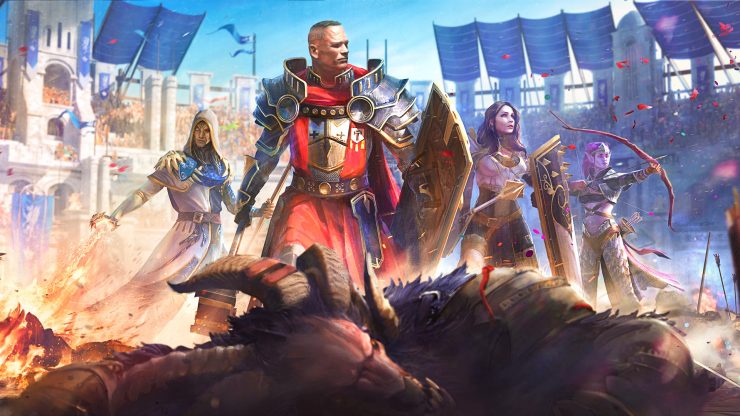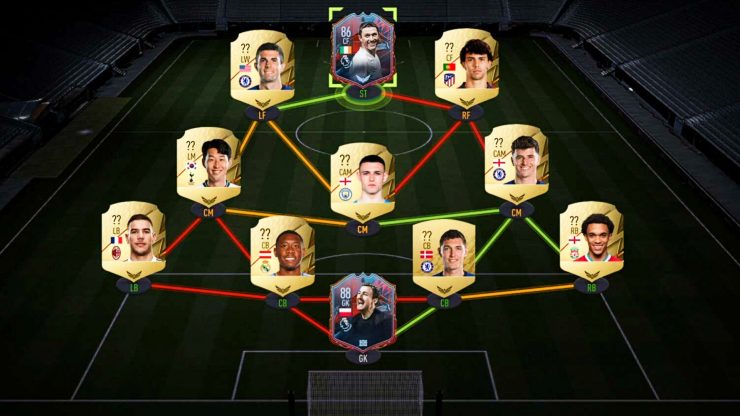The report, backed by consumer groups from 18 European countries, called loot boxes “exploitative” and “predatory” and called Raid: Shadow Legends and FIFA 22 loot boxes examples of manipulative design intended to convince users to spend money. A report prepared by the Norwegian Consumer Council (NCC) concludes that the gaming industry has “largely escaped regulatory scrutiny” and proposes regulation to enforce best practice.
The report on loot boxes is certainly not the first of its kind: In 2021, an academic study called loot boxes “like gambling.” In the latter, backed by consumer groups including the European Consumer Organization, the marketing speaks of “almost non-existent” friction associated with purchasing digital in-game loot boxes.
This is combined with a discussion of commonly used psychological techniques such as FOMO (fear of missing out), the sunk cost fallacy (the belief that you should keep investing so you don’t “waste” past investments), and survival bias (when the attention is focused on a few party members who managed to play with loot boxes instead of looking at the big picture).
Additionally, NCC mentions the use of time limits to encourage players to spend money while a limited time offer is available, as well as in-game currencies being used as intermediaries to reduce the actual cost of looting and animating crates. users to buy more with price levels. . that intentionally create the remaining currency of the game.
The report takes a detailed look at the “freemium” model used by many games, which forces the player to engage in increasingly time-consuming tasks that players must pay real money to avoid. In particular, the report focuses on two specific games: EA’s FIFA 22 and Plarium’s Raid: Shadow Legends. It focuses on the FIFA Ultimate Team mode and states that “internal documents have shown that EA develops FIFA games to push players into the FUT game mode at every opportunity, as this is where the company generates post-sale revenue.”
Limited-time promotions that offer big deals in a short time or a limited number of packages worldwide create artificial limits, according to the NCC, encouraging players to make impulse purchases before they miss out. While EA introduced the ability to preview the content of certain packs before purchasing them, this feature is “generally reserved for low-value packs” in FIFA 22.
One specific example is the chance to get the “Kylian Mbappe TOTY Card”, a powerful promotional version of the game’s cover star that was heavily used in-game during the two weeks it was available. To guarantee this card, the NCC has calculated that a player needs to open 847 Giant Rare Player Packs, worth a total of 1.7 million FIFA Points, or around €13,500 (£11,478/$14,485) to guarantee this card. .
By comparison, it would take around 2500 hours of gameplay to earn that many player packs just by playing the game. “Anticipation and Reward” are also discussed, designed to induce a dopamine rush in players upon opening packs.
The report also takes a look at Raid: Shadow Legends with its “gacha” mechanic, which is comparable in many ways to loot boxes and card games in other games. The NCC is also ironic about the cost of many purchases, pointing to Reid’s use of the term “microtransactions” and saying that “when advertised products are priced similarly to a full-on, big-budget video game, there’s nothing micro about the transaction.” transaction”. .”

Legislation and regulations
Then What does the CNC want?? The report, backed by 20 consumer groups from 18 European countries, lists a series of proposed rules. It states that video game companies “should be prohibited from using deceptive designs to exploit consumers,” that in-game purchases must always indicate their true monetary value, and that games likely to be played by minors must not offer loot boxes or Payments. . – winning systems.
They also call for more transparency in “algorithmic decision-making to influence consumer behavior.” Finally, the NCC says that consumer protection authorities must have the resources and expertise to enforce these rules, and suggests that countries consider banning paid loot boxes “unless other means fail to resolve the issues.”

Some countries have already taken a hard line on these mechanics, and the loot box ban will likely result in Diablo Immortal not being released in Belgium or the Netherlands. EA has previously branded their loot box offerings as “highly ethical,” so there’s no doubt they’ll be following the regulations very closely. Either way, big changes are expected in FIFA as it will become EA Sports FC in the upcoming installments.
Source : PC Gamesn

